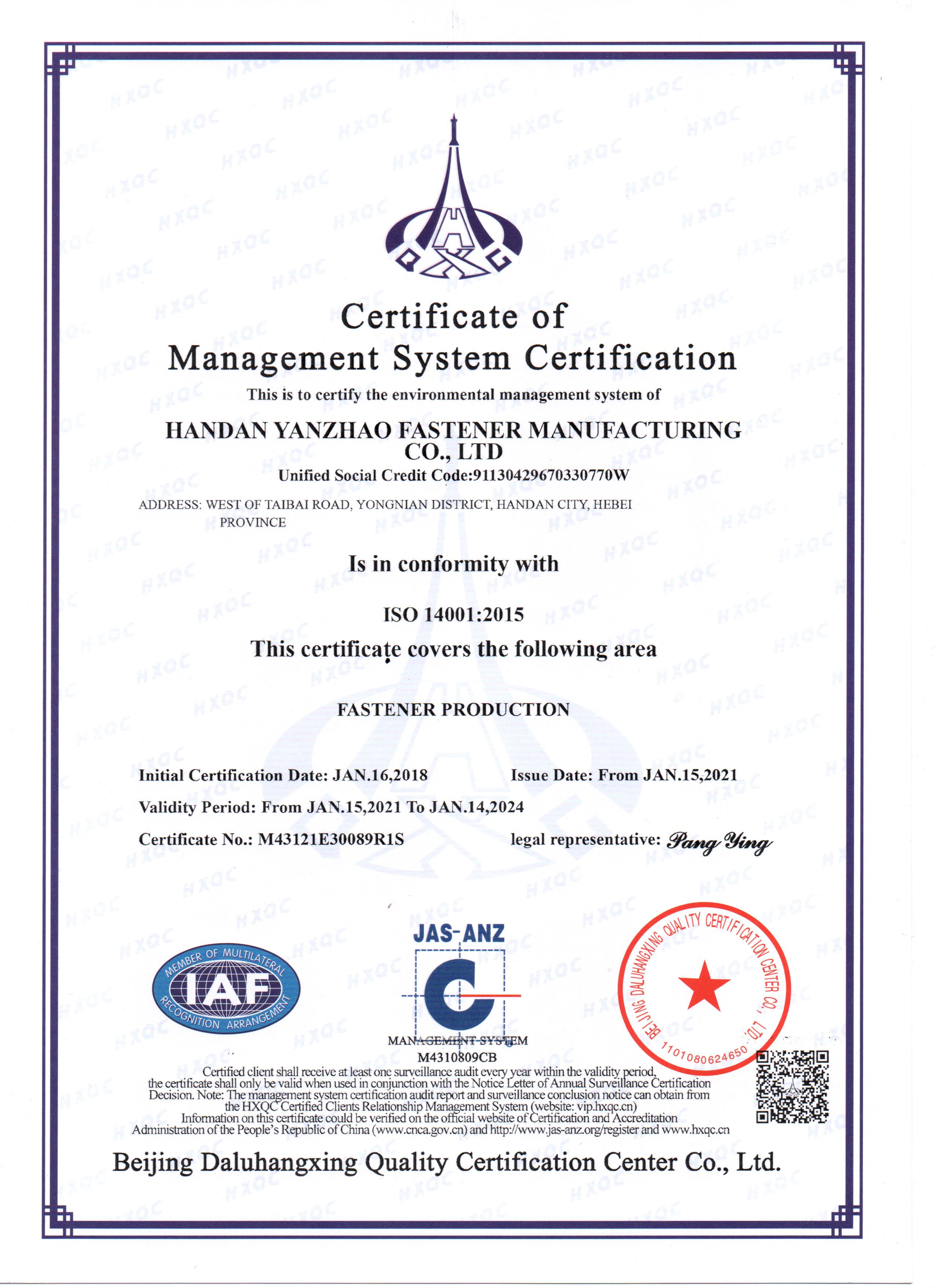Reliable Shakeproof Washers for Enhanced Stability and Performance in Engineering Applications
Aug . 20, 2024 20:58 Back to list
Reliable Shakeproof Washers for Enhanced Stability and Performance in Engineering Applications
The Importance of Shakeproof Washers in Various Industries
In today's fast-paced manufacturing and construction environments, ensuring the integrity of assemblies is crucial. One often overlooked yet vital component in achieving this stability is the shakeproof washer. These specialized washers play a significant role in preventing loosening due to vibration, making them essential for a multitude of industries, from automotive to aerospace and beyond.
Shakeproof washers, also known as lock washers, are designed to maintain tension in a bolted joint, preventing the fastener from loosening due to dynamic forces. Their unique design typically features a serrated or curved surface, which grips the surface of the materials it is securing. This added friction helps to resist the forces that cause nuts and bolts to back off, a common issue in various mechanical assemblies.
Applications Across Industries
In the automotive industry, for example, the reliance on shakeproof washers is paramount. Vehicles are subject to constant vibrations from the engine, road conditions, and other operational forces. A loose bolt or nut can lead to catastrophic failures, jeopardizing safety and performance. Automotive manufacturers utilize shakeproof washers not only to ensure the reliability of critical components but also to enhance overall vehicle longevity.
The aerospace sector also leverages the advantages of these washers. Aircraft are subjected to extreme conditions, including intense vibrations and pressure changes. Using shakeproof washers in conjunction with other fasteners is vital for ensuring the structural integrity of aircraft components. Engineers meticulously select these washers to meet stringent safety regulations, providing an additional layer of security in flight operations.
Choosing the Right Shakeproof Washer
shakeproof washers company

When selecting a shakeproof washer, it is crucial to consider the specific application and the materials involved. Factors such as load, temperature, and environmental conditions can significantly influence the performance of the washer. For instance, stainless steel shakeproof washers are often preferred in environments prone to corrosion, while softer materials may be used to prevent damage to sensitive surfaces.
Additionally, the manufacturing process of shakeproof washers has evolved, allowing for improved designs that enhance their effectiveness. Advanced materials and innovative production techniques enable companies to create washers that meet the specific requirements of diverse industries. It's essential for companies to partner with manufacturers who understand these nuances and can provide tailored solutions.
Challenges and Solutions
Despite their efficacy, shakeproof washers are not without challenges. Over time, wear and tear can lead to diminished performance, especially in high-vibration environments. Regular maintenance and inspection are necessary to identify signs of fatigue or failure. Moreover, the choice of the wrong size or type of washer can lead to inadequate locking, so careful selection and installation are paramount.
To mitigate these challenges, many companies are turning to technological advancements. The use of computer-aided design (CAD) programs allows engineers to model and test different configurations of shakeproof washers before physical implementation. This proactive approach helps to identify potential issues and optimize the assembly process, resulting in more robust and reliable products.
Conclusion
In an era where reliability is paramount, shakeproof washers have become indispensable in ensuring the performance and safety of various applications. From automotive to aerospace, these small yet powerful components play a significant role in mitigating the effects of vibration and maintaining the integrity of assemblies. As industries continue to evolve, the advancements in washer technology will only further enhance their relevance, ensuring that they remain a critical element in modern engineering and manufacturing practices. Investing in quality shakeproof washers is not merely a choice; it is a necessity for achieving excellence in product reliability and performance.
Latest news
-
High-Quality Panel Stud Bolt Reliable Panel Stud Bolt Factory & Suppliers
NewsJul.08,2025
-
High-Precision Fine Thread Locknuts Manufacturer & Supplier Custom Solutions
NewsJul.08,2025
-
PH Imperial Stud Bolt – High Strength Fasteners from Leading Supplier & Factory
NewsJul.07,2025
-
High-Quality Allen Wrench Bolts Leading Factory, Company & Suppliers
NewsJul.07,2025
-
Wholesale Ball Stud Bolt - High Quality Supplier & Factory Price Reliable Wholesale Ball Stud Bolt Company
NewsJul.06,2025
-
High-Strength Alloy Bolts Manufacturer & Supplier Quality Alloy Fasteners Factory
NewsJul.06,2025
